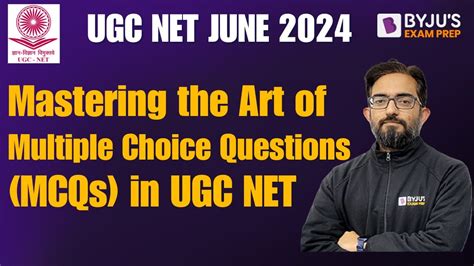Introduction
Multiple-choice questions (MCQs) are a ubiquitous assessment method used in various educational settings. Their versatility and efficiency make them an indispensable tool for testing students’ knowledge and understanding. However, answering MCQs effectively requires a strategic approach and a solid understanding of the underlying principles. This comprehensive answer sheet provides essential tips, strategies, and resources to help you excel in MCQ exams.

General Tips for MCQ Mastery
- Read the Instructions Carefully: Before attempting any question, thoroughly read the instructions to understand the specific requirements, time limit, and any penalties for incorrect answers.
- Preview the Questions: Quickly scan through all the questions to get a general overview of the topics covered and identify any unfamiliar concepts.
- Manage Your Time Wisely: Allocate time appropriately to each question based on its difficulty and potential points. Focus on completing all the questions rather than spending too much time on any one question.
- Eliminate Obvious Wrong Answers: Identify choices that are clearly incorrect or nonsensical. This can significantly narrow down your options.
- Consider the Context: Pay attention to the context or scenario presented in the question. It provides valuable clues to the correct answer.
- Guess Strategically: If you are unsure about an answer, make an educated guess based on keywords or patterns in the question or answer choices.
- Review Your Answers: After completing the exam, take some time to review your answers. Check for any inconsistencies or errors you may have overlooked.
Key Concepts
1. Question Types
MCQs can be categorized into various types, including:
- True/False Questions: Present a statement that is either true or false.
- Multiple Selection Questions: Allow students to select multiple correct answers.
- Single Best Answer Questions: Require students to identify the single most appropriate answer.
2. Answer Choice Characteristics
Answer choices in MCQs typically exhibit certain characteristics:
- Logical Structure: Choices are often presented in a logical order based on the question’s topic.
- Length and Complexity: Correct answers tend to be more detailed and comprehensive than incorrect answers.
- Specific and Precise: Correct answers avoid vague or general language.
3. Common Mistakes to Avoid
- Ignoring the Negative: Be cautious of questions that include negative terms such as “not” or “except.”
- Assume/Guessing: Avoid making assumptions or guessing without sufficient evidence.
- Choosing the “Most” or “Least” Answer: These choices may not always be correct.
- Overthinking: Don’t spend too much time analyzing every possible answer choice.
Strategies for Answering MCQs
1. Problem-Solving Approach
- Identify the Key Words: Determine the main concepts and keywords in the question.
- Consider Context and Vocabulary: Understand the context of the question and the specific meaning of the terms used.
- Use Logic and Deduction: Apply logical reasoning and deductions to eliminate incorrect answer choices.
2. Pattern Recognition Approach
- Look for Patterns: Examine the answer choices for any patterns or relationships.
- Identify Consistent Errors: Analyze incorrect answer choices to identify common errors or logical fallacies.
- Exclude Similar Answers: Avoid choosing answer choices that are similar or paraphrase each other.
3. Guessing Techniques
- Elimination Method: Eliminate clearly incorrect answer choices to increase your odds of guessing correctly.
- Process of Elimination: Narrow down answer choices by logically eliminating options based on the evidence provided.
- Weighted Guessing: Consider the difficulty of the question and the number of correct answers to determine the likelihood of guessing correctly.
Additional Resources
- Practice Tests: Regularly practice with sample MCQs to improve your skills.
- Study Guides: Review study guides and textbooks to enhance your understanding of the subject matter.
- Online Quizzes: Take online quizzes to test your knowledge and receive immediate feedback.
Tables for MCQ Mastery
Table 1: MCQ Question Types
| Type of Question | Description |
|---|---|
| True/False | Statement that is either true or false |
| Multiple Selection | Multiple correct answers |
| Single Best Answer | Single most appropriate answer |
Table 2: Answer Choice Characteristics
| Characteristic | Description |
|---|---|
| Logical Structure | Ordered based on topic |
| Length and Complexity | Correct answers tend to be more detailed |
| Specific and Precise | Avoid vague or general language |
Table 3: Common Mistakes to Avoid
| Mistake | Description |
|---|---|
| Ignoring the Negative | Missing negative terms in the question |
| Assume/Guessing | Making assumptions without sufficient evidence |
| Choosing the “Most” or “Least” Answer | May not always be correct |
| Overthinking | Spending too much time analyzing answer choices |
Table 4: Guessing Techniques
| Technique | Description |
|---|---|
| Elimination Method | Eliminate clearly incorrect answer choices |
| Process of Elimination | Logically eliminate options based on evidence |
| Weighted Guessing | Consider question difficulty and number of correct answers |
Conclusion
Mastering MCQs requires a combination of strategic thinking, analytical skills, and a deep understanding of the subject matter. By following the guidelines, strategies, and resources outlined in this answer sheet, you can significantly improve your performance in any MCQ exam. Remember to practice regularly, analyze your mistakes, and seek additional support when needed. With dedication and persistence, you can achieve MCQ mastery and excel in your academic endeavors.
